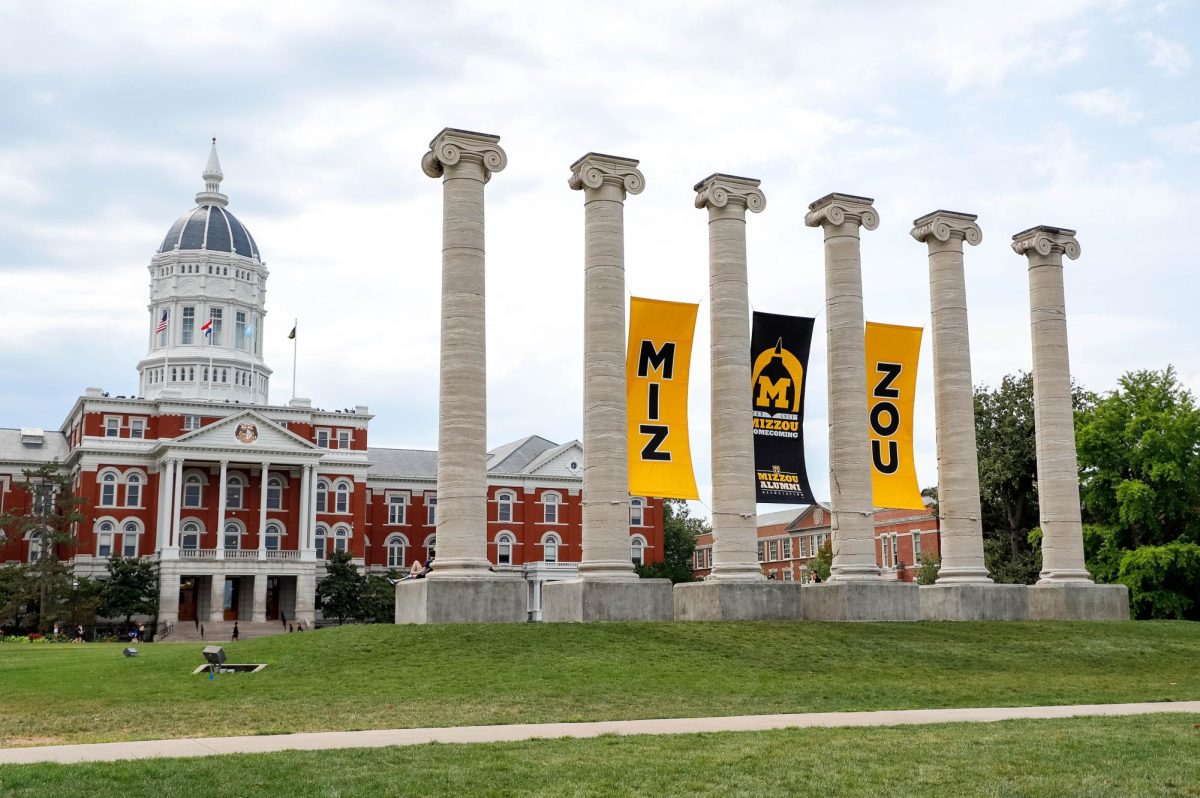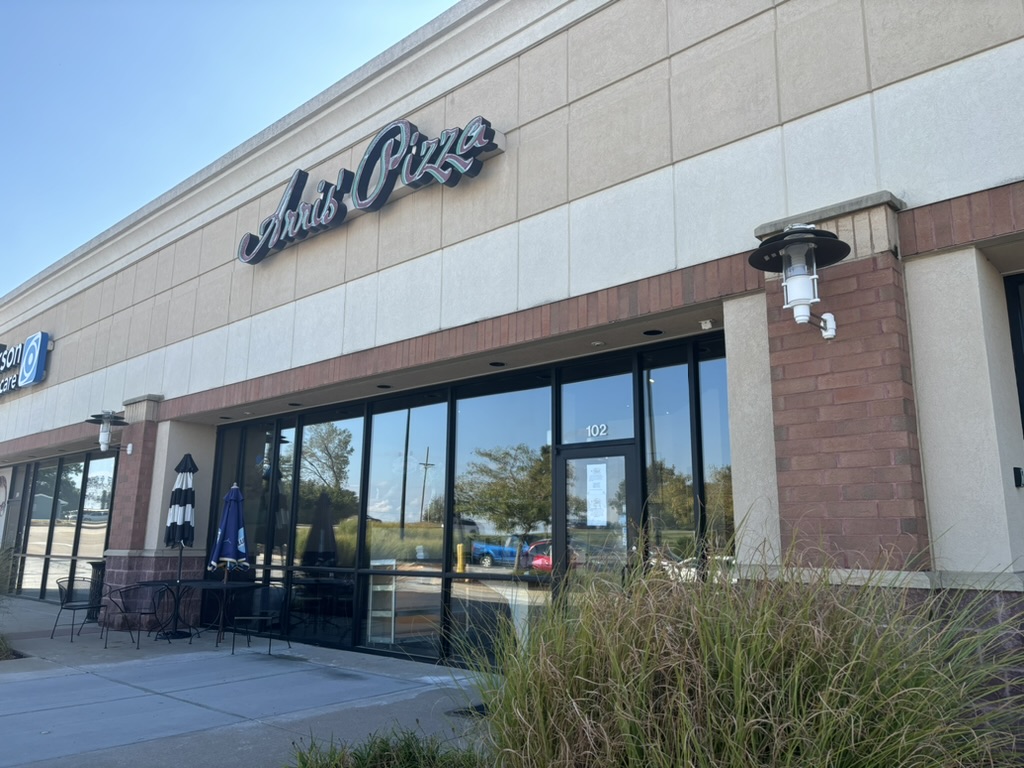Patrice Delafontaine started as the new School of Medicine dean on Dec. 1.
He was born in Alexandria, Egypt, and raised in South Africa before receiving his undergraduate and medical education at the University of Geneva in Switzerland.
After receiving his medical degree in Geneva, Delafontaine came to the U.S. to complete his residency and completed a fellowship in cardiology in Boston.
Before MU, Delafontaine served as the chief of cardiology at Tulane University in New Orleans.
####Passion for medicine
Delafontaine has over 37 years of experience in medical research, teaching and clinical work — three components Delafontaine said he is working to integrate “almost completely” in his plan to strengthen the academic medical center.
Harold Williamson Jr., vice chancellor for health affairs, said those three components are key to effectively leading the School of Medicine.
“In particular, his research experience and expertise are a good fit with the next phase of the (School of Medicine’s) advancement,” Williamson said in a [previous Maneater article](https://www.themaneater.com/stories/2014/7/23/delafontaine-named-new-school-medicine-dean/).
One example of Delafontaine’s research expertise is his discovery of an important link between the renin-angiotensin system and a hormone known as igf-1. The study was first published in _The Journal of Clinical Investigation_.
“(The) findings back from 1996 … are quite important in understanding the biology of muscle function and how that is relevant to chronic diseases and maybe the frailty of aging,” Delafontaine said. “It impacts a lot of chronic diseases, including heart failure, which is the single most expensive hospital diagnosis in the country.”
In actuality, Delafontaine said, he “stumbled upon” this discovery after two to three years of research at Emory University as an associate professor.
“One of the exciting things about science is you have a hypothesis,” he said. “So we were expecting one thing and we found something completely different; we went in after that finding and found this link.”
Delafontaine and his team are currently researching this link and its impact on chronic diseases 18 years since its discovery in a project funded by the [National Institutes of Health](http://nih.gov/).
Delafontaine said he has also acquired mentoring skills over the last 25 years of his career.
“One of the things I enjoy the most is actually interacting with students,” he said.
Since starting at Tulane in 2003, Delafontaine worked in the research lab with many students throughout the years, ranging from high school students to postdoctoral fellows.
“I always told them, ‘You know, my door’s open,’” he said. “‘You just come knock on the door.’”
Delafontaine not only mentors his students, but he creates and maintains long-lasting relationships with them. Although he no longer works at Tulane, Delafontaine still has an unpaid faculty appointment there.
“I actually have one graduate student who’s finishing her Ph.D. down (at Tulane),” he said. “She may be four or five months away, so I wanted to keep a faculty appointment and make sure she got everything done.”
####Goals for the School of Medicine
Delafontaine said he aspires to help the School of Medicine move forward.
While Delafontaine holds higher expectations and goals for himself as the new dean, he said he still holds many of the same hopes and values he had in his previous professions — especially the importance of mentoring students.
In a [previous interview with The Maneater](https://www.themaneater.com/stories/2014/7/23/delafontaine-named-new-school-medicine-dean/), Delafontaine expressed the importance of a good patient-doctor relationship, defining it as the “bedrock of a good doctor.”
Similarly, Delafontaine recognizes dean-student relationships to be just as important.
“My role is to help people get grants and become independent,” he said.
Delafontaine said he is no longer directly involved with the smaller components of medical school, and is instead focused on the big picture, such as generating academic expansion.
“We can grow many different clinical programs here,” he said. “There are many of them that are already very, very successful.”
Williamson said in a previous interview that Delafontaine stood out among various candidates for the positions because “he has a very high level of integrity, responsibility, work ethic, mentoring experience, collaborative instinct and has experience in several medical schools.”
Although Delafontaine will be less directly involved with MU’s clinical work and medical research, his broader role will allow him to accomplish more within the School of Medicine.
The dean’s main responsibility is to support the mission of the School of Medicine, which, according to Delafontaine, is to “improve the health of all Missourians through exemplary research, teaching and clinical work.”
Delafontaine said he also believes that service to the community is just as much of a component as research, teaching, and clinical work.
In order to benefit the community, Delafontaine said he plans to take advantage of his broad role by stretching it across the entire school.
“I am most motivated and personally satisfied by bridging and integrating education, research, and clinical work,” he said. “I think the most exciting thing about academics is integrating those three components.”
Delafontaine’s plan to integrate components of medicine is not only efficient, but it holds the potential for positive, long-term effects on the community.
“(Integration) actually educates the basic researcher, the medical students, the residents, the undergraduates and the physician during the process,” Delafontaine said.
####Goals for MU
However, Delafontaine said his focus is not solely in the School of Medicine. He also plans to help students from various fields of study by implementing interdisciplinary research. MU’s terrific potential for research and educational collaboration helped convince him to move over 700 miles to Columbia, he said.
“(A) big attraction was the strength of the different components of the university,” Delafontaine said. “All the different schools and colleges that are on-site here really allow for a lot of collaboration.”
Delafontaine said there were a number of factors that attracted him to taking the position, including the excellent reputation of the university. He said the health care system’s leadership and success also impressed him, especially since it continued to grow in a time when healthcare is under a lot of national pressure.
####Settling in
Delafontaine said he is beginning to settle in by spending time learning about the institution, meeting the people and finding out about some of the issues on campus.
“I’ve enjoyed meeting everybody and I’m taking every day as it comes,” he said. “I must say … it’s going great.”
Former interim dean Les Hall said he has been helping Delafontaine transition into his new position and has high hopes for Delafontaine.
“I believe (Delafontaine) will be an outstanding leader for the School of Medicine and will make major contributions to the entire MU community,” Hall said in a [previous Maneater article](https://www.themaneater.com/stories/2014/7/23/delafontaine-named-new-school-medicine-dean/).
Hall is set to become the new dean at the University of South Carolina School of Medicine on Feb. 1, 2015.
“We will miss him here,” Delafontaine said. “He’s been a real delight to work with, but I think (this is) a great opportunity for him.”













